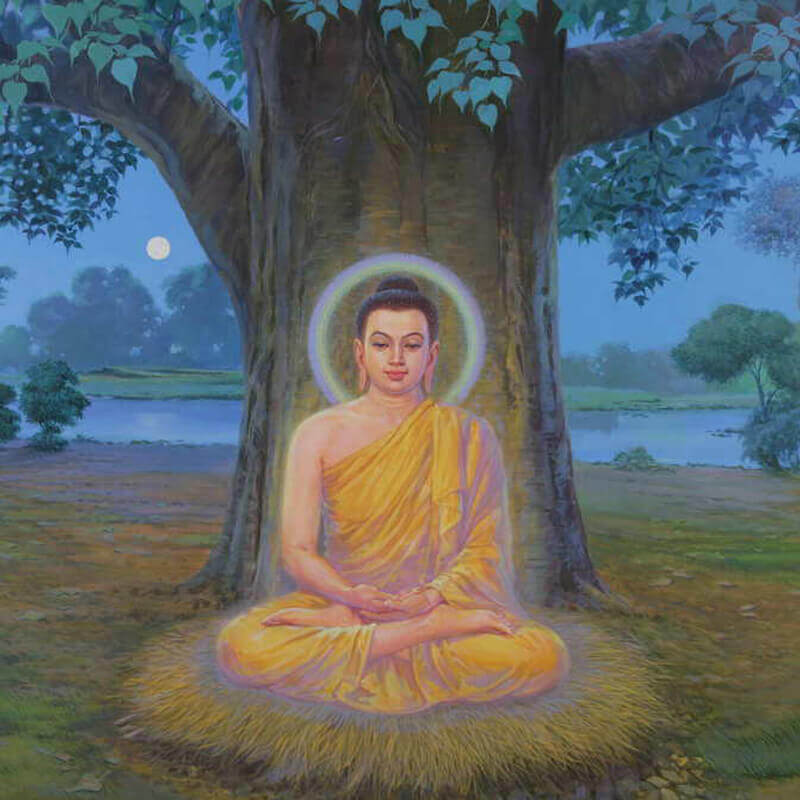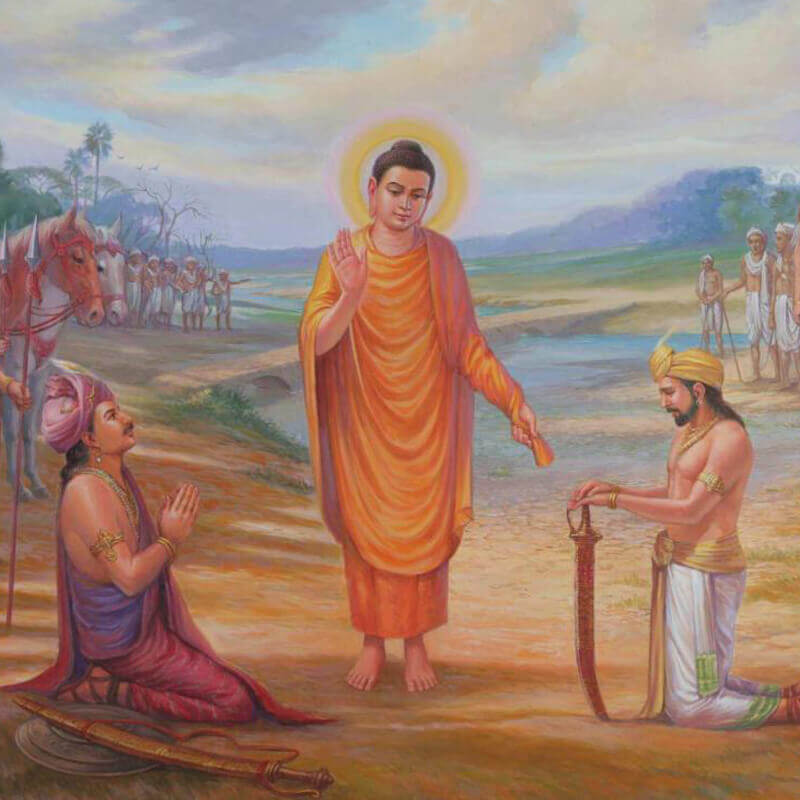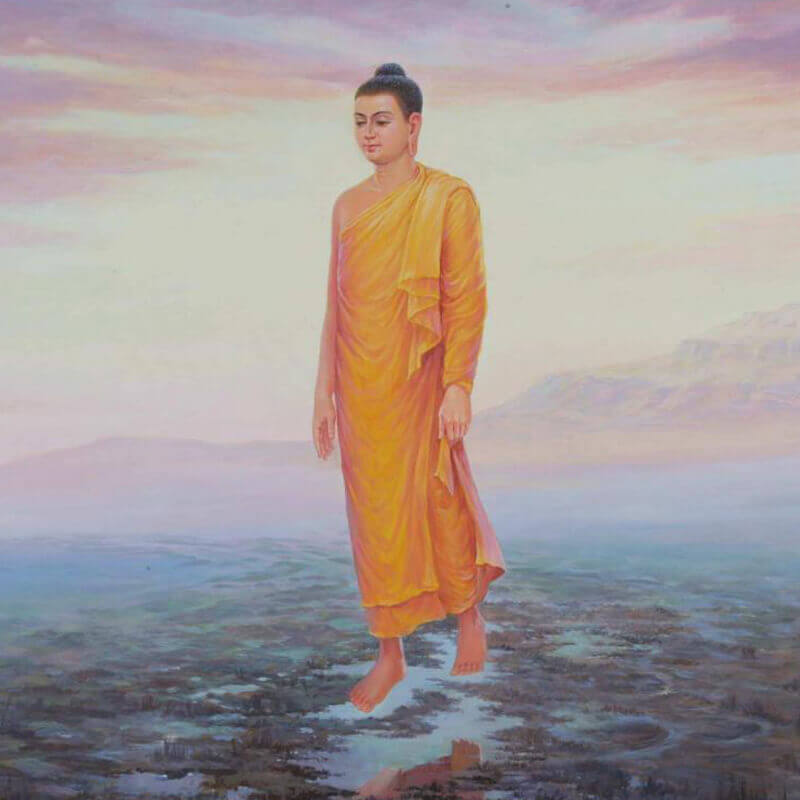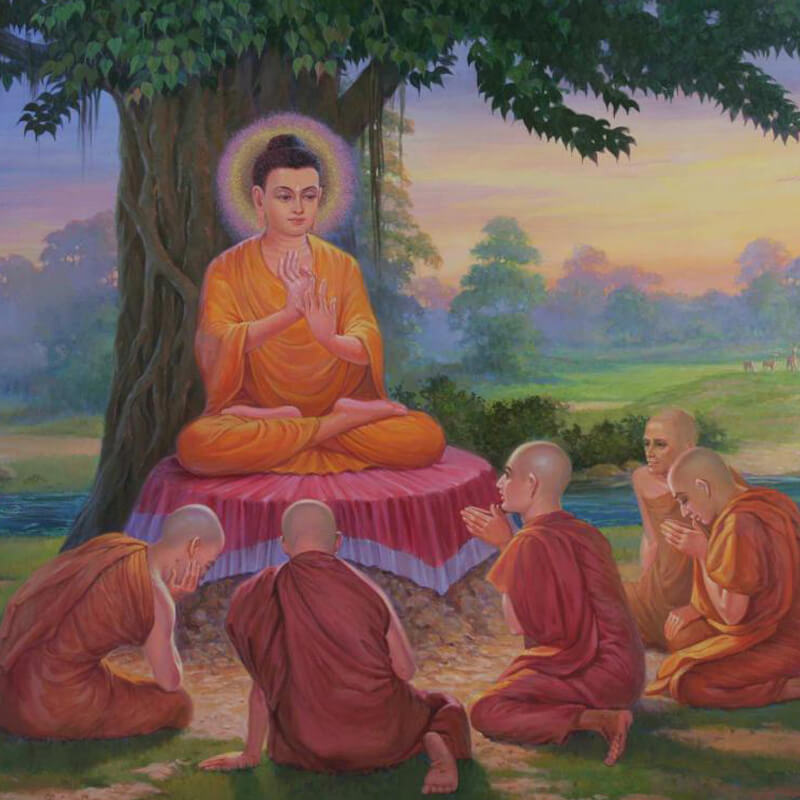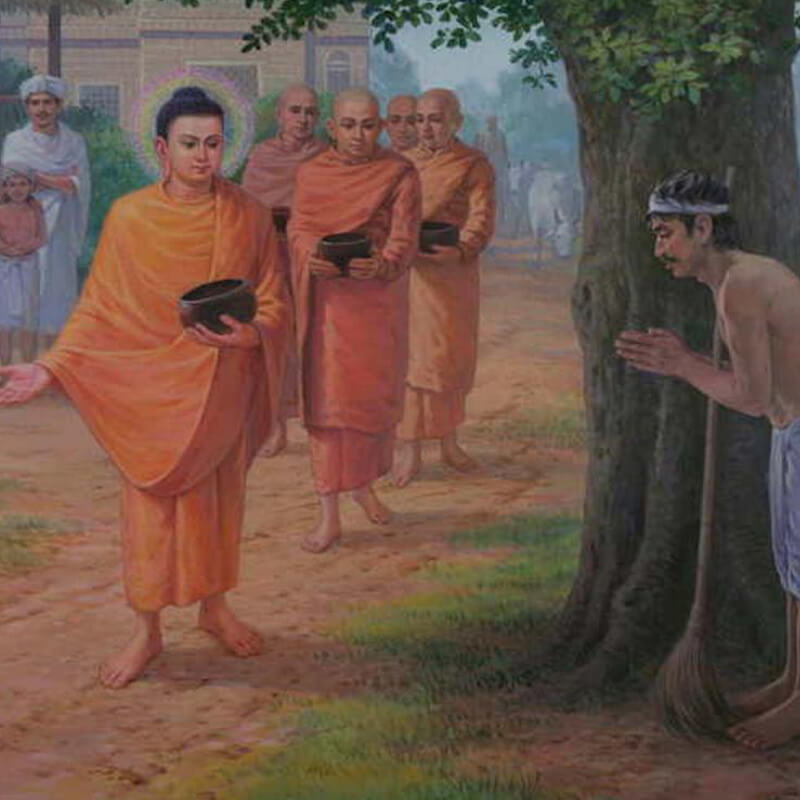“Venerable Sir! These ascetics are among those in this world who are either enlightened or are established on the path of enlightenment. The Buddha after observing their condition said” –
“It is not so, His Majesty! A person does not become enlightened or get established on the path of enlightenment merely by changing the guise. One has to strive in the right manner to achieve this. Even if someone finds the right path, yet a wise person has to stay with him for a long time to know whether he is walking on the path in the right way or not. In a short period it is not possible to know about his true conduct. His Majesty! One's honesty or dishonesty can be judged by his conduct and behavior only. That also is possible only after observing his day-to-day activities for a long period”.
Only a wise person is capable of keeping a watch on his behavior properly and not everyone.
Only in times of adversity, the fortitude of a person's mind can be known. In the same way, a person's wisdom is known by discussion with him for a long time.
King Prasenjit was very much impressed with this explanation given by the Buddha and while begging forgiveness with amazement he revealed the truth.
Venerable Sir! all these are our spies. They collect secret information in disguise from within and also information about the activities of the neighboring states and keep me informed. Based on their information, I take necessary action after careful consideration. Venerable Sir! Now, these people will take a bath, wash away their ashes, rub scent on their bodies and after wearing clean clothes will enjoy the five kinds of sensual pleasures.
Hearing this, the Buddha explained –
“A person cannot be known by dress and adornment. One cannot know a person by merely looking at his dress and demeanor. Wicked persons also roam about in this world performing attractive actions with great self-control. They are like counterfeit earrings made of clay and coated with gold. They look outwardly beautiful but they are inwardly impure. So, without knowing thoroughly, never believe anybody. Merely on the basis of his outer dress and guise, only after carefully understanding his conduct, one should believe him”.
A True Recluse
Once the Buddha was dwelling at Aswapur town in Anga state, he addressed the monks and said:
Monks! people take some one as a recluse and when he is asked if he is one he declares himself a recluse. So a man designated as a recluse and who claims to be a recluse has to walk on the path proper to the recluse. It is for that purpose that people offer him robes, alms-food, resting-place and medicine and other useful requisites. Their offerings become fruitful only when his renunciation is pure, his conduct is good and his actions are helpful in the welfare of people.
Monks! how is one not able to practice the way proper to the recluse? So long as a recluse does not abandon his greed, anger, enmity, contempt, cruelty, jealousy, stinginess, deceit and evil wishes he cannot become a proper recluse. These are the stains of a recluse, obstacles on the path of becoming a true recluse. These are grounds for his birth in a state of deprivation. I call this kind of renunciation a two-edged sword which rips the robe of a recluse if it is hidden there.
Any one having such stains cannot be called a recluse even if he wears a robe, even if he smears his body with dirt and dust or with ash or even if he dwells in water or dwells at the root of a tree, or if he wears the bark of a tree, or if he dwells in the open air or if he practices continuous standing or if he keeps a fast and takes food at intervals or if he recites the Vedas or incantations.
He will be a true recluse only if he is free from the stains enumerated above. He will have to constantly walk on the path of purification. Then only he will live the life of a true recluse.
Only when some one gives up the above defilements, he becomes a true recluse. For eradicating these defilements, one should constantly practice the path of mind purification and after getting rid of the defilements, live a life of a true recluse.
Monks! how is one able to practice the way proper to the recluse?
When a recluse abandons his wrong view, when he drives out anger, greed, enmity etc and becomes free from these defilements, then only he is considered able to practice the way proper to the recluse. Then only he can consider himself pure and liberated. Gladness arises in the mind of such a recluse who has attained freedom from all such mental defilements. Rapture follows gladness. The body of such a person becomes tranquil, one whose body is tranquil feels pleasure and one who feels pleasure, his mind becomes concentrated. He then abides pervading one quarter with a mind imbued with loving kindness. In the same way he abides pervading second, third and fourth quarter, above, below, around and everywhere with a mind imbued with unbounded loving- kindness without hostility and without ill will, imbued with unbounded compassion, sympathetic joy and equanimity. He makes every one happy and helps every one to derive benefit. In this way his life of a monk becomes meaningful.
Suppose, monks! there were a pond with clear, cool and potable water with beautiful and delightful banks and a man from the east, scorched and exhausted by hot weather, goes to the pond, quenches his thirst and gets relief from the heat, similarly men come there from the west, from the south and from the north and quench their thirst and get relief from the heat. In the same way, monks, if any one from a Kshatriya family goes forth from the home life into homeless life, receives the Dhamma taught by the Tathāgata, enjoys peace by practicing four Brahmavihāras such as loving-kindness, compassion, sympathetc joy and equanimity, such a monk is established on the right path. In the same way persons from a Brahmin family, from a Vaisya family and from a sudra family go forth from the home life into homeless life, practice the Dhamma taught by the Tathāgata i.e. practice Vipassana meditation and develop loving-kindness, compassion, sympathetic joy and equanimity, they become true recluses. They become free from all taints, all mental defilements and by realising for themselves with direct knowledge here and now enter upon and abide in the deliverance of mind and deliverance by wisdom.
Destruction of taints actually makes one a true recluse. He might have come from any family or clan. That does not become an obstacle in the path of his becoming a recluse.
Come, meditators, let us walk step by step on the path of Dhamma, be free from mental defilements and attain our true welfare and happiness.

